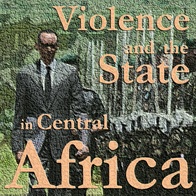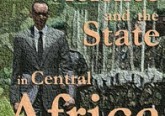
When president Nkurunziza announced his intention to run for a third term, serious unrest exploded in the streets of Bujumbura. In the last three weeks, violent clashes with the police have triggered fears of a new civil war and destabilisation of the entire African Great Lakes region. So far, the international community has been unable to calm the situation and over 110,000 Burundians have already fled the country. The Oxford Central Africa Forum hosted a round-table on the 15th of May to examine the causes of the current situation and discuss the prospects for peace and democracy in Burundi and the region. It gathered six researchers who have conducted fieldwork in Burundi:
- Professor Patricia Daley, School of Geography and the Environment [PD]
- Dr Andrea Purdekova, African Studies Centre [AP]
- Dr Olivier Sterck, Centre for the Study of African Economies [OS]
- Rowan Popplewell, School of Geography and the Environment [RP]
- Jean-Benoît Falisse, Department of International Development [JBF]
- Benjamin Chemouni, Department of International Development, London School of Economics [BC]
We present some of their analysis and findings here in a short series of three articles. In this second post, we discuss the role of local grievances, ethnicity, and the economy in the conflict.
The question of the constitutionality of a third term is absolutely central in the present crisis. The protesters have repeated their view that the constitution does not allow for a third term and expressed their fear of a carving up of the 2000 Arusha Peace agreement. The issues around the third term and Arusha have been widely discussed in the media and other essays. The roundtable tried to take a slightly different viewpoint and explored the key issues of the present crisis beyond the question of the third term: local grievances and post-war reconciliation and integration, the economy (and especially agriculture and aid), and whether the “ethnic factor” is still relevant.
Even well before the election, there has been a palpable discontent with the government on a number of issues. There is no question that the Arusha peace agreement brought in a profound political change. The power sharing agreement changed the historical ethnic composition of government and ended the exclusion of Hutu from politics. Despite this landmark change in representation and the composition of government, local narratives are profoundly about continuity rather than change, taking issues with the very notion of ‘transition’. Fieldwork conducted in 2013 found that people even question the very notion of ‘peace’, repeatedly highlighting that Burundi has only ‘a little bit of peace’ or no peace at all. People’s notion of security expands beyond physical security, to material security and survival, and hence to economic concerns, prime amongst which is access to land. The story of continuity also ties to perceptions of impunity – no one in Burundi has thus far been prosecuted for political murder-, to lack of progress on questions of justice and memory, lack of trust in the newly established Truth and Reconciliation Commission (which interestingly only appeared on the scene months before the election, in December 2014), and perceptions of corruption, abuse of office, the sense of being ‘used’ by those in authority (people speak of being their “bridge” to other objectives). [AP]
The land issue is an explosive one, but again does not affect all parts of Burundi equally. Bururi province is particularly affected (and the soon to be province of Rumonge) as well as Makamba. These are the areas that produced the majority of refugees in 1972 and that in turn saw the largest inflow of returnees after the war. Most came back only to find their lands occupied. Instead of the promised recovery of their lands, many had to strike land-sharing agreements as an interim measure. The size of this problem is far from negligible (around half a million people returned after the war.) and it is also an open and unresolved issue. The CNTB (The National Land Commission), established in 2006, the very institution meant to resolve the land conflict, has recently fuelled it further. Under the controversial leadership of Serapion Bambonanire, many returnees were awarded the land in full, effectively pushing the “residents” out without compensation. This has resulted in stand-offs and fights on a number of hills, and in the deterioration in community relations at an already tense time (Since then the CNTB has been suspended, and Bambonanire sacked). [AP]
Burundi’s population overly relies on agriculture, which employs around 90% of the population. The Burundian performance in agricultural production since the end of the war is dismal. Food production barely keeps up with population growth. As a result, food prices are constantly increasing, feeding the general inflation that has regularly exceeded ten percent since the end of the war. The second consequence is that child malnutrition is the third highest in the world. Burundi has also the highest score on the Global Hunger Index. The roots of this problem are mainly political. Comparing to neighbouring Rwanda, whose food production is in a much better state, Burundi has more conducive ecological conditions for agriculture, such as vast plains. Yet, corruption and patronage undermine efforts to boost production. For instance, the sector of improved seeds and mineral fertilizers have been important sites of rent capture for individuals close to the ruling party. [BC]
The rest of the Burundian economy struggles to develop and few industries have been built since 2005. Burundi is lagging far behind its neighbour Rwanda, which has a similar size, population, and natural resources endowments (very few minerals, but tea and coffee). The apparently decent 4-5% GDP growth rate of Burundi in the past few years is unlikely to help rapidly alleviate poverty when once the very fast population growth rate is added to the equation. In 2013, international aid amounted to 20% of the GDP and 49% of budget (World Bank). Rampant corruption at all levels has been denounced by the protesters and is visible in ostentatious villas and cars in Bujumbura. Burundi ranked 159 out of 175 in the 2014 Transparency International Corruption Perception Index. A recent Gallup survey found that 38% of the Burundian population is “suffering”, and another 58% is “struggling”. Between 2009 and 2014, the proportion of people who find that the economy is getting worse has increased from 51% to 72%. [JBF]

The current crisis is worsening the economic situation and seriously endangers the ambitious –and often popular- social programmes launched by the president in the past ten years such as the exemption of health-care user fees from pregnant mothers and children below five, free schools, a reform of primary school, and a new health insurance scheme. Key donors (Belgium, EU, USA, the Netherlands, Germany) have already frozen aid programmes and threatened to pull out totally if the situation continues to deteriorate. [JBF]
Ethnicity failed to rear its head in the 2010 elections, with hardly any political opponents using the discourse of ethnicity during the campaign. The exception was Pasteur Habimana (from a small party – FNL-Iragi rya Gahutu) who, whilst campaigning in Rumonge Commune, Bururi Province, called on Hutus to ‘stop Tutsis from ever returning to power’. He was, apparently, condemned by the main Hutu-dominated parties. In popular discourse extremist Hutus hold the view that Tutsis still retain power, despite Hutu dominance in government. So far, the conflict is not framed in ethnic terms, for two main reasons:
Firstly, ethnic divisions do not necessarily overlap with political divisions, which are at the epicentre of the current crisis. The leader of the failed May 2015 coup, Major-General Godefroid Niyombare, is a Hutu and a former member of Nkurunziza’s rebel group and CNDD/FDD. He and other prominent party members were expelled by Nkurunziza from the party in February 2015 for criticizing his bid to run for a third term (Niyombare seems to have escaped capture but his Tutsi collaborators have been arrested). Yet, political in-fighting within CNDD/FDD and its contestation with FNL (the National Liberation Front) suggest that ethnicity is not the fault line that it was in the past. The bulk of political violence against other parties since the end of the war was towards the FNL, a Hutu-dominated party (and more recently against MSD). It is useful to note that historically (and more recently, by virtue of the constitution), Burundi’s political parties have always been multi-ethnic, drawing on regional alliances. This did not prevent most of them from operating in the interest of the ethnic group that dominated the party. For example, the longest ruling party in Burundi’s history, the Union for National Progress (UPRONA), was always seen as a Tutsi-dominated party with Hutu members. In the same vein, one could argue that the ruling party, CNDD-FDD and its main opposition FNL are predominantly Hutu parties with representations from other groups. Cross-ethnic alliances are more meaningful on the ground and, therefore, stronger among the poor urban and rural communities.
Secondly, the fact that the ruling CNDD-FDD is a Hutu-dominated party went a long way in fighting the ethnic prejudice of the eternal Tutsi exploiter. It has showed the Hutu majority of the population that Hutu can also exploit Hutu. Yet, it is not to say that ethnic conflict could not erupt if violence goes on. The Tutsi, by the simple fact of being a minority, may bear the brunt of violence as a group, following the Swahili proverb that “when elephants fight the grass gets hurt”. Tutsi could become an easy scapegoat – part of them are indeed opposed to the president and Tutsi are known to be very present in Bujumbura. What is worrying about the recent political violence in Bujumbura is that a very visible part of it has been occurring in areas of the city that used to be predominantly Tutsi, in the neighbourhoods of Ngagara, Cibitoke, Musaga, Nyakabiga and Mutakura – and that this might be used by unscrupulous politicians as evidence of an ethnicized opposition to Nkurunziza’s regime. [PD & BC]
For part one in this series, see here. For part three, see here.





No Comment